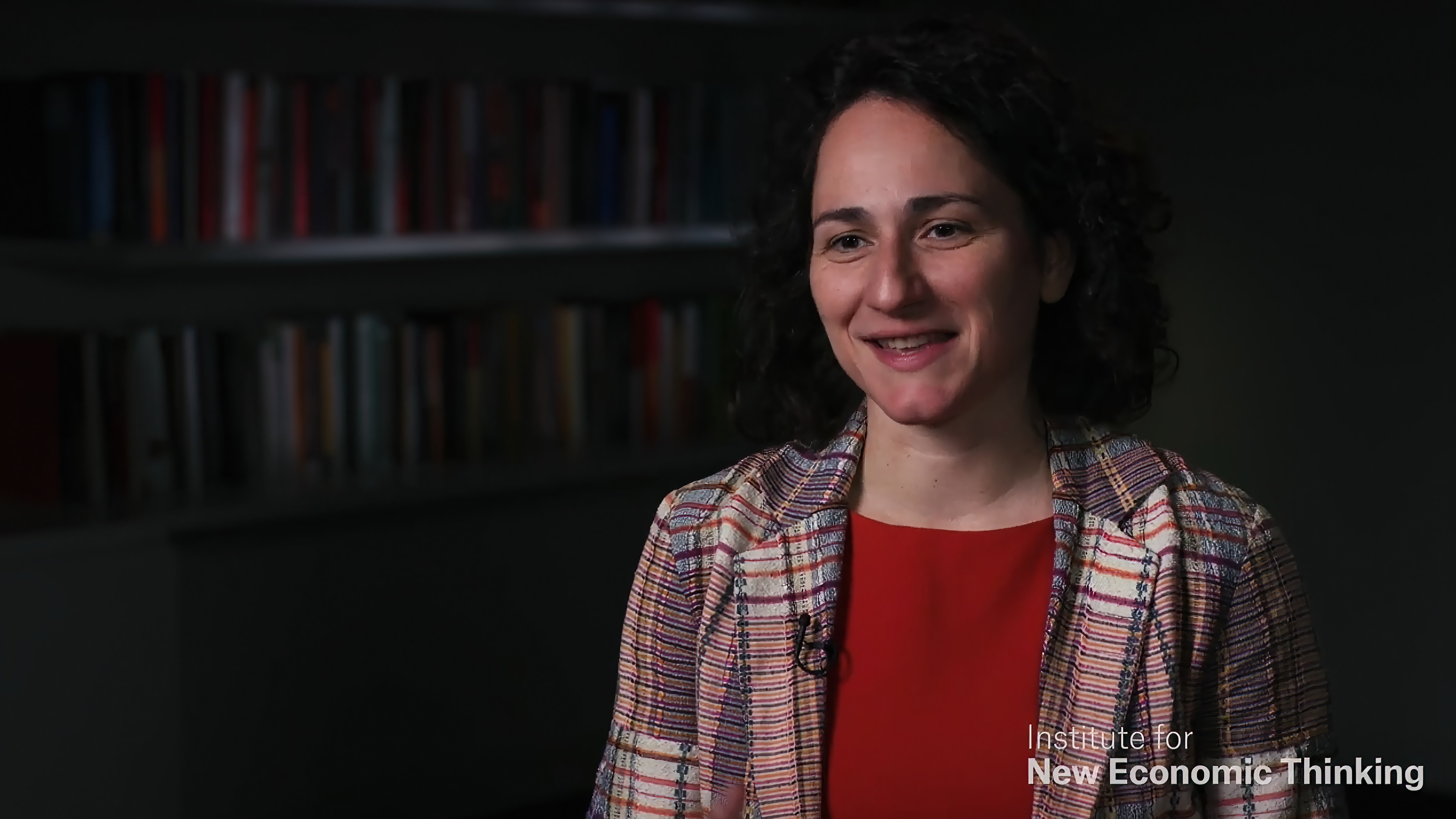Education
Ph.D. – University of California, Berkeley, 2014
M. A. – University of California, Berkeley, 2010
B.A. – Yale University, 2005
Research Interests
Professor Hannah Farber specializes in the political economy of colonial North America, the early American republic, and the Atlantic World. Her first book, Underwriters of the United States (Omohundro Institute of Early American History and Culture/UNC Press, 2021) explains how the transnational system of marine insurance, by governing the behavior of American merchants, influenced the establishment and early development of the American republic.
Additional research interests include: the visual and material culture of commerce (recent scholarship has focused on the bill of lading, and commercial property marks), interest rates, and civil court.
Hannah Farber is a series editor for American Beginnings, 1500-1900, at the University of Chicago Press, and a frequent co-organizer of the Columbia University Seminar on Early American History and Culture.
She was a 2020-2021 recipient of a National Endowment for the Humanities Fellow at the New-York Historical Society.
Publications
Book
*John Lyman Book Award, US Maritime History, North American Society for Oceanic History, 2021
*Hagley Prize for Best Book in Business History, Business History Conference, 2023
Other Selected Publications
“Slave Trade Insurance in the Age of Abolition: Archives, Politics, and Legalities,” forthcoming, Slavery and Abolition
“Early American Commercial Property Marks: Reading According to Code, and Beyond,” Early American Literature, Vol. 57, No. 1 (Feb. 2022): 43-84.
“Something From Nothing? Currency and Finance in the Critical Period,” in From Independence to the U.S. Constitution: Reconsidering the Critical Period of American History, eds. Douglas Bradburn and Christopher R. Pearl (University of Virginia Press, 2022), 193-215.
“Insurance For (and Against) the Empire,” Commonplace: the Journal of Early American Life, April 2022,
“The Political Economy of Marine Insurance and the Making of the United States,” The William and Mary Quarterly, Vol. 77, No. 4 (Oct. 2020): 581-612
“Practical Americans” (review essay), The William & Mary Quarterly, Vol. 78, No. 2 (Apr. 2021): 339-357.
“Caught Between Pedagogy and Politics: The Challenges of Teaching Globalization in the Twenty-First Century,” The History Teacher, Vol. 53, No. 3 (May 2020): 441-469
“‘Hamilton:’ Who Tells Your Story?” Public Books, co-author Derek Miller, Feb. 13. 2019.
“Sailing on Paper: The Embellished Bill of Lading in the Material Atlantic, 1720-1864,” Early American Studies, Vol. 17, No. 1 (Winter 2019).
*John M. Murrin Prize for best article published in EAS in 2019.
“Unrevolutionary Bastardy,” review of The Low Road by Bruce Norris, The Junto: A Group Blog on Early American History, May 16, 2018.
“State-Building After War’s End: A Government Financier Adjusts his Portfolio for Peace,” Taking Stock of the State in Nineteenth-Century America, Journal of the Early Republic, Vol. 38, No. 1 (Spring 2018): 67-76.
“Millions for Credit: Peace with Algiers and the Establishment of America’s Commercial Reputation Overseas, 1795-96,” Journal of the Early Republic, Vol. 34, No. 2 (Summer 2014), 187-217.
“Nobody Panic: The Emerging Worlds of Economics and History in America,” book review of Jessica Lepler, The Many Panics of 1837: People, Politics, and the Creation of a Transatlantic Financial Crisis (Cambridge, 2013), and Jonathan Levy, Freaks of Fortune: The Emerging World of Capitalism and Risk in America (Harvard, 2012), Enterprise and Society, Fall 2015.
“The Rise and Fall of the Province of Lygonia, 1643–1658,” New England Quarterly 82 (September 2009), 490–513.
Awards
- 2020: National Endowment for the Humanities Fellow at the New-York Historical Society
- 2019: Heyman Center Junior Faculty Fellowship, Columbia University
- 2019: Hettleman Summer Fesearch Fellowship, Columbia University
- 2018: Lenfest Junior Faculty Development Grant, Columbia University
- 2015: Finalist, Dissertation Prize, Society for Historians of the Early American Republic
- 2013-14: Mabelle McLeod Lewis Memorial Fund Fellowship (Stanford, CA)
- 2012-2013: Barra Dissertation Fellowship, McNeil Center for Early American Studies
- 2012-2013: Long Term Fellowship, Program in Early American Economy and Society, Library Company of Philadelphia
- 2011-2012: Exploratory Travel Grant, Economic History Association
- 2011-2012: Fellowship, New England Regional Fellowship Consortium
- 2011-2012: Marty and Bruce Coffey Fellowship, Huntington Library
- 2011-2012: Albert J. Beveridge Grant for Research in the History of the Western Hemisphere, American Historical Association
- 2011-2012: George H. Guttridge Graduate Prize, History Department, UC-Berkeley
- 2011-2012: Short-Term Academic Research Fellowship, American Antiquarian Society
- 2011-2012: Sort-Term Fellowship, Program in Early American Economy and Society, Library Company of Philadelphia
- 2011-2012: Samuel Flagg Bemis Dissertation Research Grant, Society for Historians of American Foreign Relations
- 2010: Outstanding Graduate Student Instructor Award, UC-Berkeley
- 2005: John Addison Porter prize for best undergraduate thesis in American history, Yale University
Courses
- Contemporary Civilization I and II
- Early American Autobiography as History: Testimony, Adventure, Confession (seminar)
- Readings in Early American History (graduate)
- The Early American Republic: How the Rebels Became the Empire (lecture)
Affiliations
- American Historical Association
- Omohundro Institute of Early American History and Culture
- Society for Historians of the Early American Republic

